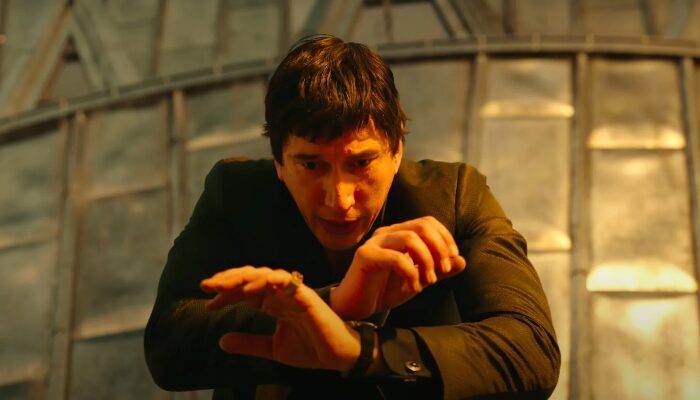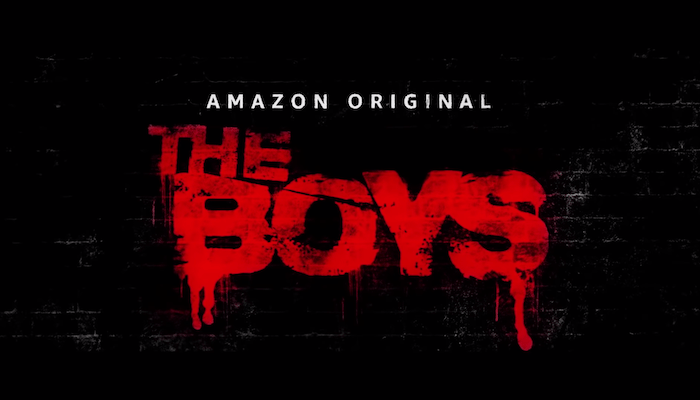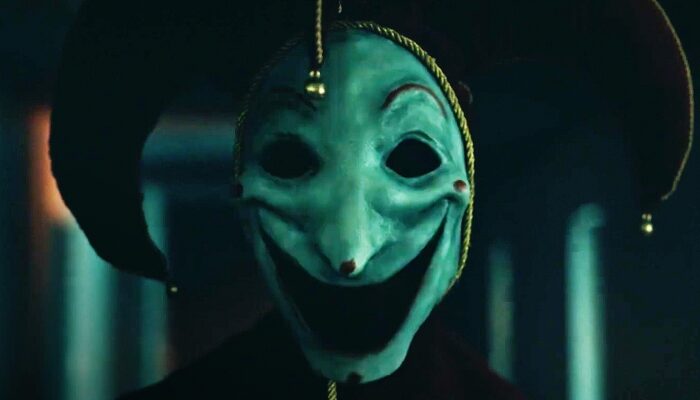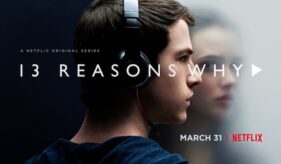TV Review: BLACK MIRROR: Season 3, Episodes 1-6 [Netflix]
Table of Contents
Black Mirror Men Against Fire Review
Men Against Fire was an episode about covert ethnic cleansing facilitated by advanced technology. Men Against Fire had a clever and thought-out central premise that was revealed in the episode’s third act. Men Against Fire‘s final two scenes were its best. The second-to-last-scene of Men Against Fire was like The Architect scene from The Matrix Reloaded. Like the events in The Architect scene, Arquette (Michael Kelly) explained to Stripe (Malachi Kirby) why Stripe’s existence was in its current configuration.
Arquette’s warfare monologue was the crème de la crème of the dialogue in Men Against Fire. Stripe’s breakdown after he was given access to his real memories validated the monologue’s thesis. My question is: Why would you sign up to be a soldier, knowing that you would have to kill, if you could not deal with the emotional consequences? What did Stripe think he would be doing as a soldier? Washing windows? Did war footage, war pictures, and war news reports not exist in that future?
I know that war pictures and films do match the visceral reality of war but Stripe seemed to be blithely ignorant during his recruitment video and surprised that he was killing during his memory playback. Even if it was a “Roach,” it was still a being with feelings and emotions.
I guess Arquette was right. Killing a Boogeyman (a “Roach” in this case) was far easier than killing a living, breathing human. I was surprised by Stripe’s final choice but in general, it wasn’t surprising. If you could erase murders that you had committed from your head and stabilize your head at the push of a button (instead of being tortured by those memories), why wouldn’t you?
Cypher chose the unreality of The Matrix and Stripe chose the unreality of MASS. The consent requirement for MASS was a new, litigious, and realistic touch.
Black Mirror Hated in the Nation Review
Hated in the Nation was the second TV movie episode of Black Mirror: Season 3. Unlike San Junipero, the other TV movie episode of Season 3, Hated in the Nation did not have a satisfying ending. It was ambiguous, like many episodes of Black Mirror where it was up to the viewer to project where the lead character went from that point in their life. Relying on the intelligence of the viewer is not a bad thing but San Junipero showed how satisfying a closed ending could be over an open ending.
That being said, Hated in the Nation successfully tackled the menace of cyber-bullying, both in its practice and in its result.
The characters in the high-stakes situations in Hated in the Nation were two-dimensional, unlike the characters in The National Anthem. Many viewers felt sorry for the situation that Prime Minister Michael Callow found himself in within The National Anthem. The viewer didn’t feel anything for most of the characters in Hated in the Nation. They were characters that responded to the situations that they found themselves in. Nothing more.
The one character that created the biggest impression in Hated in the Nation was journalist Jo Powers (Elizabeth Berrington). She reveled in the hatred spewed at her. She cared about nothing besides herself, her work, and probably her husband. She was energized by the vitriol directed at her and it showed.
More should have been made of the government surveillance via the Autonomous Drone Insects (ADIs). Spoken of briefly, surveillance by ADI would have major Big Brother implications for the society in question. Since National Crime Agency agent Shaun Li (Benedict Wong) was called to testify on the ADI case, my guess is that U.K. officials weren’t pleased by those implications.
Leave your thoughts on this Black Mirror: Season 3 review and this episode of Black Mirror below in the comments section. Readers seeking more TV show reviews can visit our TV Show Review Page, our TV Show Review Twitter Page, our TV Show Review Facebook Page, and our TV Show Review Google+ Page. Want up-to-the-minute notification? FilmBook staff members publish articles by Email, Twitter, Tumblr, Google+, and Facebook.
Related Articles
FilmBook's Newsletter
Subscribe to FilmBook’s Daily Newsletter for the latest news!












